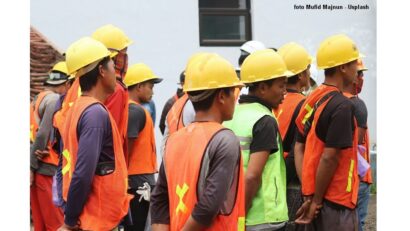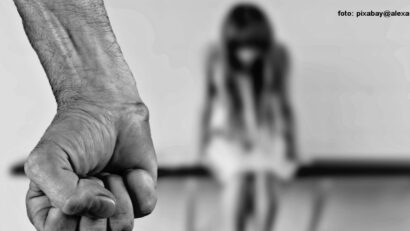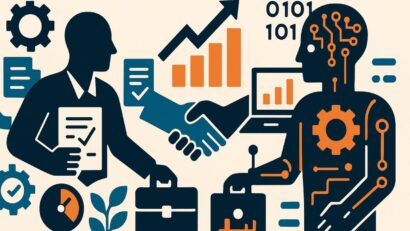How Society and Individuals React to a Health Crisis
The state of emergency in Romania brought with it various restrictive measures applied gradually

Christine Leșcu, 08.04.2020, 14:16
Decreed in mid-March because of the novel coronavirus pandemic, the state of emergency in Romania brought with it various restrictive measures applied gradually. Perhaps the most life changing is the restriction on freedom of movement, which means a drastic reduction in circulation, social distancing. Initially affected by the fear of infection, then by sheltering in place, Romanians, like all other Europeans, are facing a unique situation, which hasnt been seen in generations. Individual and group reaction have been studied by experts, who believe it is natural to feel a level of agitation. Sociologist Ciprian Gradinaru noticed a wave of panic among many Romanians at the start of the health crisis:
“There was that outburst of pointless purchasing, and then, inexplicably, products like toilet paper disappeared off the shelves. Romanians made long-term stockpiles, but this situation can be seen all over the world. There are jokes everywhere about the vanishing toilet paper. The same happened with disinfectants. Medical alcohol is harder and harder to find. Prices for certain products were hiked up by panic profiteers, but also because of heightened demand. During this entire period, the whole of society focused on the crisis created by the virus. In the initial stage, before the quarantine, I believe there was a state of generalized confusion. That also happened in hypermarkets, there was an incredible bustle, and people were crowding to gather provisions. That was the ideal environment for the virus to spread. Gradually, we understood better what was happening, and we adapted, now we line up to get into a store. This confusion is natural, since this is a situation none of us had to deal with before.”
Panic has two possible consequences: it can do harm, but it can do some good too, because it makes people pay attention to the messages from doctors and the authorities. Among them are decisions restricting circulation, which did not spark a lot of protest, as noticed by Ciprian Gradinaru:
“There have been some institutions that criticized these decisions, but there was no strong social reaction against them, precisely because each person knows that they can be directly affected by this virus. I expect that, as time goes by, people will get used to the idea, and the stress level will go down.”
We asked Ciprian Gradinaru what expectations sociologists have in terms of the changes in the collective mindset as a result of this health crisis:
“Something will definitely change. First of all, in the long run, there will be changes in the economy and our rights in terms of movement. Consumption habits will also change, most likely. And in the two months spent mostly at home, perceptions will change on the importance of social and family life.”
On an individual level, changes will emerge as well, in terms of anxiety management mechanisms, according to psychologist Diana Stanculeanu:
“It is natural to feel a dose of anxiety. It is an adaptive response of the brain, telling us that something is wrong, and that we have to prepare. These fear and anxiety feelings are the engine of this preparation. This is the first step in accepting the fact that we cannot be completely relaxed during this time. Moving ahead, it is important to discover what are the activities we can have at home that make us avoid an overload of anxiety, which can overcome us, leading to panic or desperation. From this point of view, i recommend cultivating a routine to help us gain a feeling of control and predictability. It doesnt have to be very complicated, and it should include all our routines for physical fitness. For instance, we have to change our clothes and not spend the whole day in our pajamas. We should bring home some of the chores from work, but be aware that during this time we cannot functions at our usual performance level. To all this we should add relaxation by reading or by watching movies. It is important that these be activities that discipline the body, honor the mind, and discipline the soul, so that we remain in an area where we can manage our anxiety.”
Long term changes are to be expected at the level of individual mentality too, Diana Stanculescu believes:
“In the tumult of activities before isolation, we kept wanting to see dear friends, call our parents more often, to take more coffee breaks to interact with workmates. We were aware that these things were important, but we did not take the time for them, or did so too little. We are beginning to regret the routines of socialization from before, and as a result we have to remember this, so that, when we get back to normal, we will be aware of the importance of socialization, and not theoretically, but by direct and constant interaction with the people we hold dear. Until then, it would be well to have some digital rituals, because they are the only ones available now, and to make a habit of calling each other and seeing each other, within the possibilities, with our parents, with relatives and friends we miss. I am referring to the types of interactions that we were putting off before because of daily obligations.”
According to psychologists and sociologists, this would be an upside of this period of social distancing: placing more value on the truly important human contacts, and making them a priority in the face of professional activities, which sometimes overwhelm us.






























